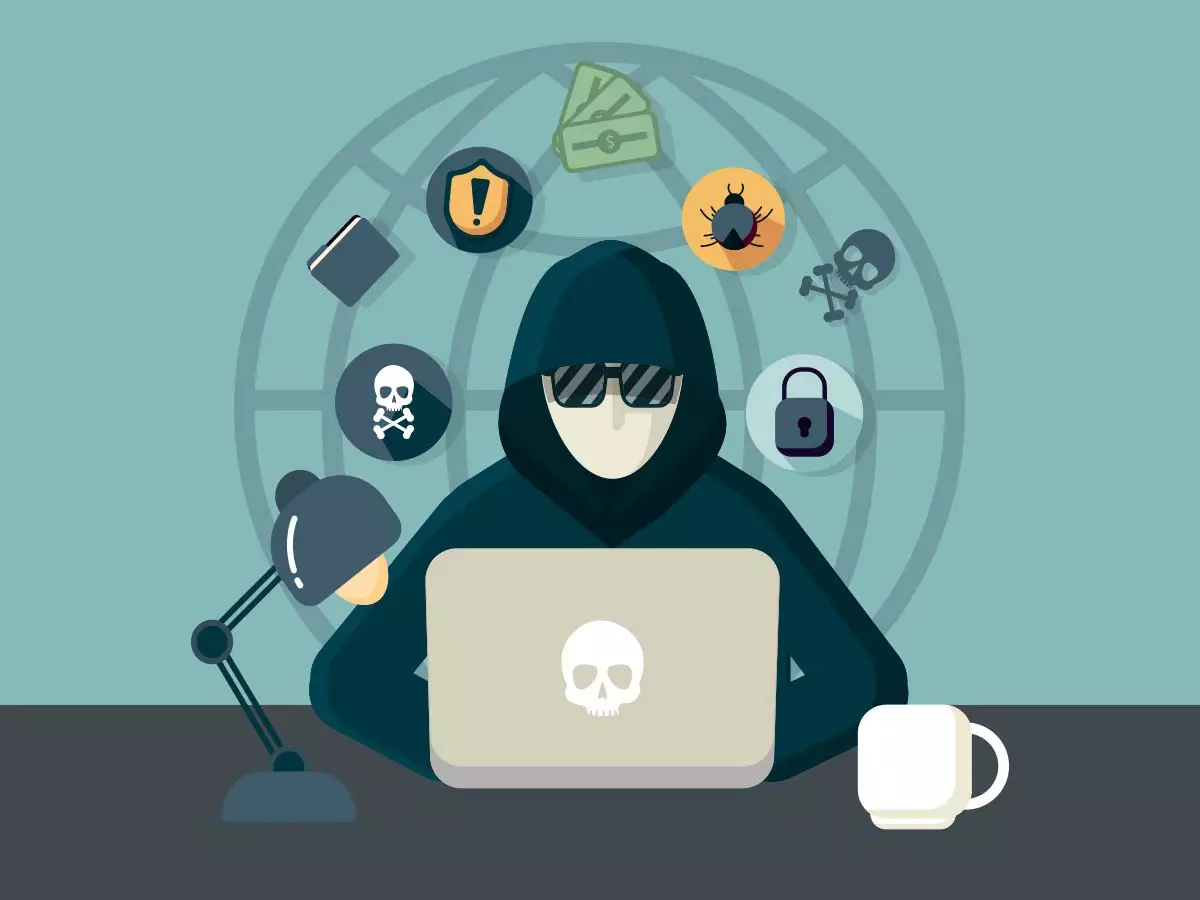Cybercrime is committed by utilizing internet technology. Cybercrime in technological development is categorized as a negative impact, because it harms victims and violates the code of ethics for using the internet. The perpetrators of this cybercrime use their computer devices, and connect the computer to the internet network, to attack the victim’s information system.
Cybercrime crimes can be committed across continents because the internet can connect computers in various parts of the world. This means that the perpetrators and victims of crime can come from all over the world.
As a form of crime, cybercrime in Indonesia has been regulated in Law Number 19 of 2016 concerning Electronic Information and Transactions (UU ITE).
Types of Cybercrime in Indonesia
Carding
Carding is a crime committed by using unauthorized credit card transactions. Instead of using their own credit card, the perpetrator uses illegal means to obtain credit card information belonging to other people. After obtaining the information, the perpetrator uses it to make purchases or transactions.
One of the carding cases in Indonesia is the credit card breach of Awkarin, Gisella Anastasia, Jesica Iskandar, Tyas Mirasih, Ruth Stefanie, and Boy William. The guise of the three perpetrators was to offer travel promos. All three offer services on Instagram @TIKETKEKINIAN and the tricky promo is a cheap discount program ranging from 10-20%.
This syndicate buys credit card data illegally from a network of spammers. The price quoted for 1 data is Rp150,000-Rp200,000. The original owner of the credit card is from Japan.
This scam made a profit of up to hundreds of dollars over the course of a year. Then, the money from carding was used to pay for the promotional services of the six Indonesian artists, including covering airplane tickets and hotels.
Phising
Phishing is an act of cybercrime by tricking victims. Usually, phishers create mock websites, spread fake links, or send emails to potential victims. The goal is to get the victim’s data from personal identity to passwords, PIN codes, and OTPs on accounts.
Phishing cases in Indonesia reach tens of thousands. There were 34,633 cases recorded during 2017-2022. The Chairman of the Indonesian Internet Domain Name Management (Pandi), Yudho Giri Sucahyo, said that in the 3rd quarter of 2022, 7,988 unique phishing attacks were reported. The targeted business sectors were Government Institutions 68%, e-commerce or retail 17%, and others 15%. There were 181 unique domains used for phishing attacks.
Ransomware
Ransomware is malware that is infiltrated to infect a computer and take the victim’s data. Then, the perpetrator asks for a ransom by threatening the victim for taking the victim’s important data.
Did you know? Indonesia ranks as the country with the highest ransomware threat in ASEAN. The ranking is based on an Interpol report reported by CNN Indonesia in June 2022. There are 1.3 million ransomware cases in the ASEAN Cyberthreat Assessment 2021 report released by Interpol, which makes Indonesia ranked first. Second place is Vietnam with 886,874 cases.
Online Loans
Online loans that are not registered with the Financial Services Authority (OJK) are illegal. Perpetrators use victims’ ID card photos and selfies to be sold on the black market, used for money laundering, and other crimes.
Lack of financial literacy can be a factor in getting caught in pinjol. Member of the OJK Board of Commissioners for Consumer Education and Protection, Friderica Widyasari Dewi, said that many people complained about being trapped by pinjol.
“Previously trapped by loan sharks now pinjol,” she said, as reported by CNBC Indonesia. Because of pinjol, a resident who borrowed Rp2 million had to be willing to sell his house because of the interest-bearing loan mode.
Illegal Content
The last type of cybercrime that is commonly found in Indonesia is illegal content. The perpetrators spread information that is not true and violates the law, such as slander (hoax) and fake news, information with pornographic elements, and other information concerning state secrets or government propaganda.
With the rise of cybercrime cases in Indonesia, you need to be introspective when browsing the internet. Report any cybercrime you experience or encounter to the authorities.



